Folk stories were the myths that guided my ancestors’ lives in the villages and valleys of what is now northern Italy. They were told in nightly gatherings, known as the filò, a word related to the Italian verb filare, meaning to spin. Words were spun into stories about every aspect of life, as fibers were spun into thread and baskets were made. The magic and wonder of the natural world came alive and not only entertained the families gathered there, but also conveyed valuable messages.
As an academic researcher searching for her cultural identity, finding these stories written down became an invaluable source of knowledge for my dissertation, as well as a repository of wisdom that serve as guidance towards sustainable living in harmony with the cycles of nature. I have come to appreciate the value of older women in my family and communities, women who hold a culmination of spiritual agency from their experience. I have sought my own value and validation in a youth-oriented patriarchal society and have dedicated decades of research to my own family’s history and to the untold stories of women across time.
In the folk stories, old women were counselors and advisors, knowledgeable in matters of health and love. As comari, (“co-mothers” or “with Mary”) women shared their knowledge in sisterhood with friends; as godmothers they held babies at baptism, as midwives they were present at birth; as grandmothers they were the storytellers, the conveyer of the culture through their words. Although women’s wisdom was negated as “old wives tales,” and the old women of the folk stories sometimes became described as witches, the Wise Women have always known and understood their own power.
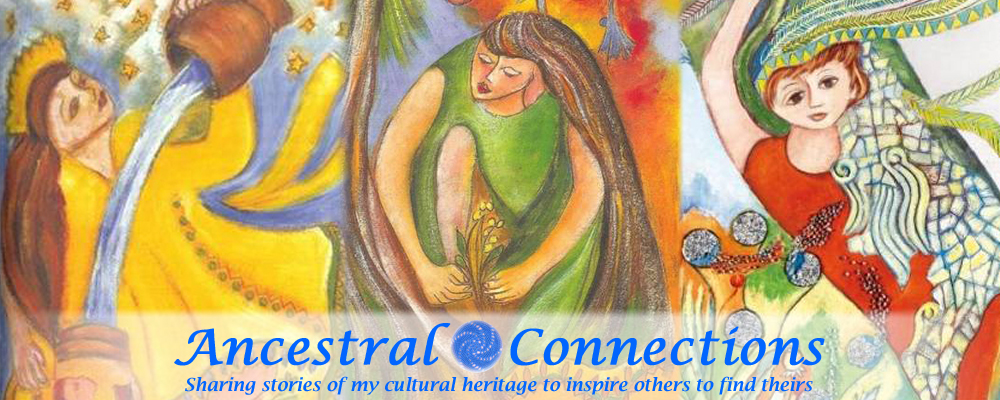
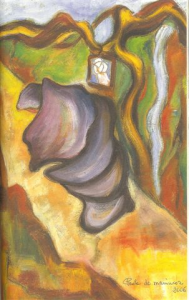
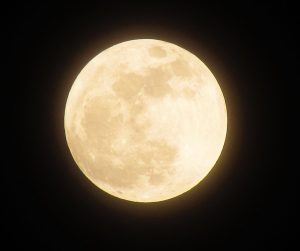
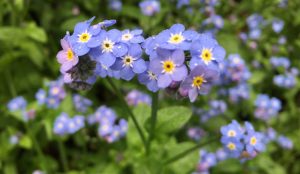
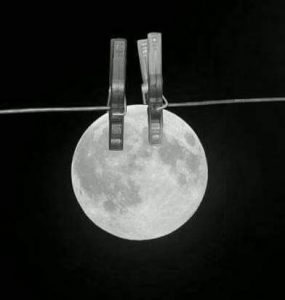 The blackberries are fermenting on the vine, fallen leaves blanket the picnic table, and the slice of sun on my clothesline arrives later each day. With the arrival of fall, the days of being able to hang my laundry outside are growing fewer. Lately I have been pondering my passion for this ritual of outdoor clothes drying. Is it only the sensual pleasure I crave, or something more?
The blackberries are fermenting on the vine, fallen leaves blanket the picnic table, and the slice of sun on my clothesline arrives later each day. With the arrival of fall, the days of being able to hang my laundry outside are growing fewer. Lately I have been pondering my passion for this ritual of outdoor clothes drying. Is it only the sensual pleasure I crave, or something more?  My ancestral calling began decades ago with a curiosity about my heritage. Growing up, I knew only that my four grandparents, immigrants from Europe to “L’America,” were from “The Old Country.” Their early deaths, differences of language, and the pressure for immigrants to the United States in the 20th century to assimilate all contributed to a loss of transmission of cultural identity. As a result, I was raised without an explicit knowledge of my cultural heritage. In my twenties, when I first located my grandparents’ villages in the northern Italian region of Trentino, and walked on the paths there, I felt a stirring of recognition, a genetic memory of a long connection to that land. Some part of me came alive and felt connected in a different way than I had experienced in my Colorado birthplace.
My ancestral calling began decades ago with a curiosity about my heritage. Growing up, I knew only that my four grandparents, immigrants from Europe to “L’America,” were from “The Old Country.” Their early deaths, differences of language, and the pressure for immigrants to the United States in the 20th century to assimilate all contributed to a loss of transmission of cultural identity. As a result, I was raised without an explicit knowledge of my cultural heritage. In my twenties, when I first located my grandparents’ villages in the northern Italian region of Trentino, and walked on the paths there, I felt a stirring of recognition, a genetic memory of a long connection to that land. Some part of me came alive and felt connected in a different way than I had experienced in my Colorado birthplace.